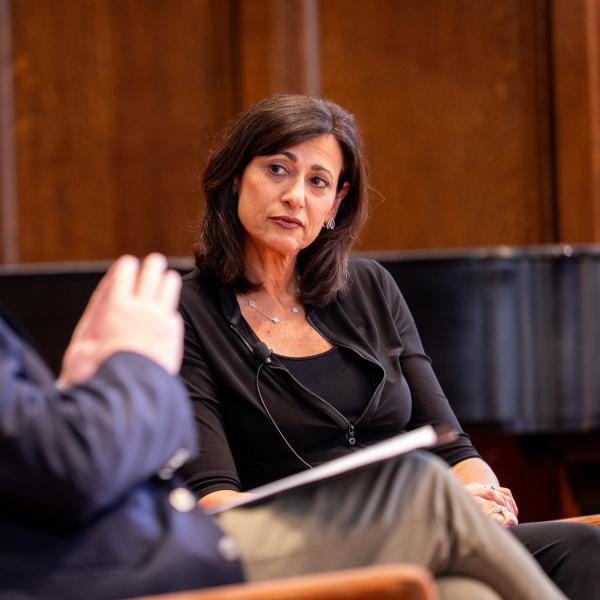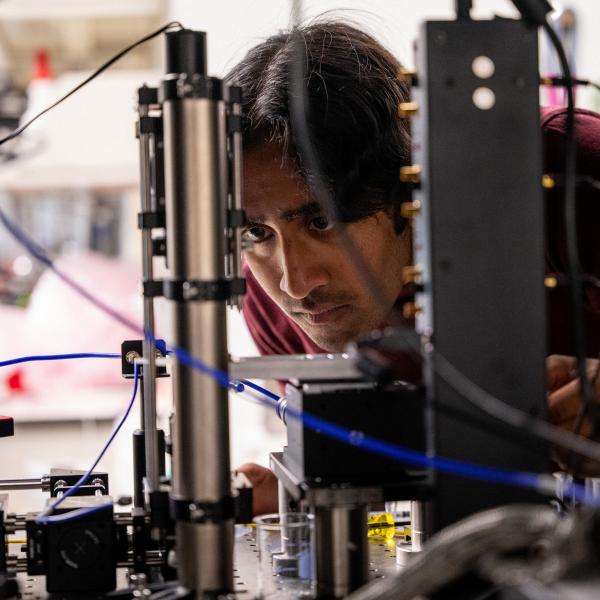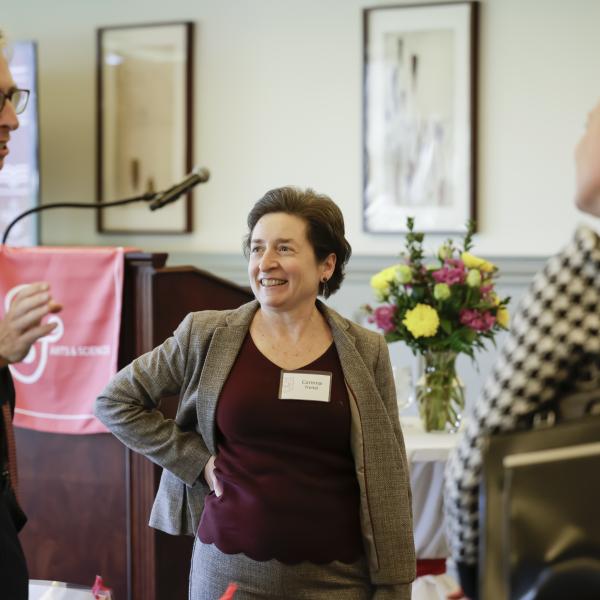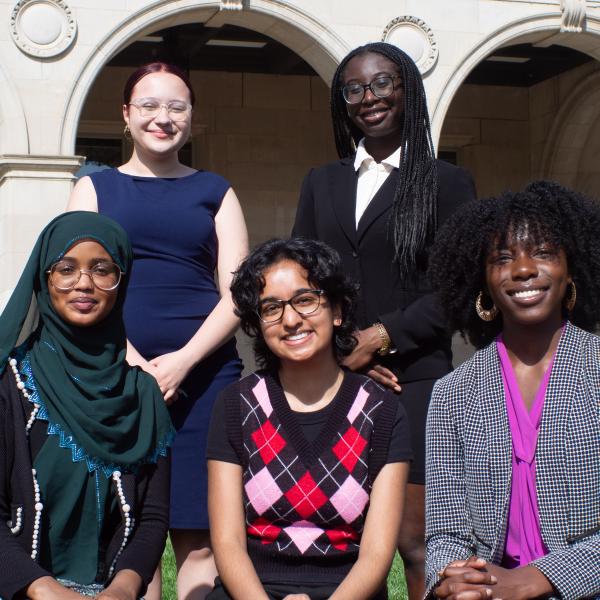Three NSF graduate research fellows share the broad impact of their research and time at Wash U.
Washington University has a long tradition of welcoming and training talented graduate students. One measure of this success is the number of National Science Foundation (NSF) Graduate Research Fellowships won by our students. Every year, NSF invests in the vitality and diversity of the scientific and engineering workforce of the United States through its Graduate Research Fellowship Program. Candidates are judged both on intellectual merit, the potential to advance knowledge, as well as broader impacts, the potential to benefit society. In the past 60 years, over half a million students have applied, competing for the prestige as much as the funding. Approximately 60 fellows are currently at WashU. We talk with three of these students to learn how these fellowships have impacted their research, time at WashU, and relationships within the greater St. Louis community.
Chelsey Carter
2016 fellowship recipient in Anthropology
3rd year graduate student
Chelsey spends every Thursday in Washington University’s Center for Advanced Medicine. She isn’t ill – rather, she’s working as a volunteer phlebotomist in an ALS neuroscience unit. ALS, which stands for amyotrophic lateral sclerosis, is a fatal motor neuron disease that starts off with muscle weakness and has no cure yet. Chelsey, who is advised by Professor Rebecca Lester, is getting to know the ALS clinic, team, and patients while finishing her MPH coursework and preparing for an intensive year of full-time research fieldwork.
Each October over 13,000 students apply for the 2,000 NSF awards across all fields in STEM, including STEM education. Chelsey’s proposal, which involves studying how people of color may be experiencing ALS medical care differently from other patients, won the award on her first try. Although Chelsey has not yet begun her year of fieldwork, the patients she meets through her volunteer work have deeply impacted her perception of the disease. One patient, a person of color, confided to her, “I got asked if I was a drug user first, and all these other things, before a provider thought to test for ALS.” Chelsey estimates that there are about 500 patients with ALS in the greater St. Louis region. Even in the absence of bias or discrimination, ALS proves extremely difficult to diagnose, despite increased awareness following cosmologist Stephen Hawking’s diagnosis in 1963 and the popular ice bucket challenge videos in 2014. Chelsey’s mission is to study “the power of people giving voice to their own illnesses and expressing what their disease looks like,” she says.
Thanks to the fellowship and the financial flexibility it provides, Chelsey will travel to Philadelphia for two conferences this spring, as well as to NYC and Atlanta to attend large ALS awareness walks. But more importantly, she says, “the NSF has helped me do more work.” Without the fellowship, she would likely work in a routine clinical lab or hold some other job for 20 hours per week instead of focusing on classes and volunteering in Dr. Tim Miller’s neurology clinic. In the additional time, Chelsey is developing her methods, focusing her research question, and building her network, in hopes of increasing the impact of her upcoming year of research.
After graduate school, Chelsey, a St. Louis native, plans to continue her work in Washington, D.C. or Atlanta, two regions with many research institutes focused on ALS and other rare neuromuscular diseases, including the NSF, NIH, CDC, ALS Association, and others. She hopes to contribute to research and scholarship on topics of ALS, race, and disability. “I don’t just want to be taking from the participants and from the lab space,” Chelsey says. “I also want to be able to give something.”
Marina P. Gross
2017 fellowship recipient in Psychological & Brain Sciences
3rd year graduate student
For Marina, the second time was a charm when it came to applying for this prestigious fellowship. After receiving an honorable mention with her first submission, she learned last spring that she had been chosen as a fellow. That year, the winners happened to be announced two weeks earlier than expected, and Marina’s friends flooded her inbox and phone with congratulatory messages before she even saw the official email. “It was very special to me,” she recalls.
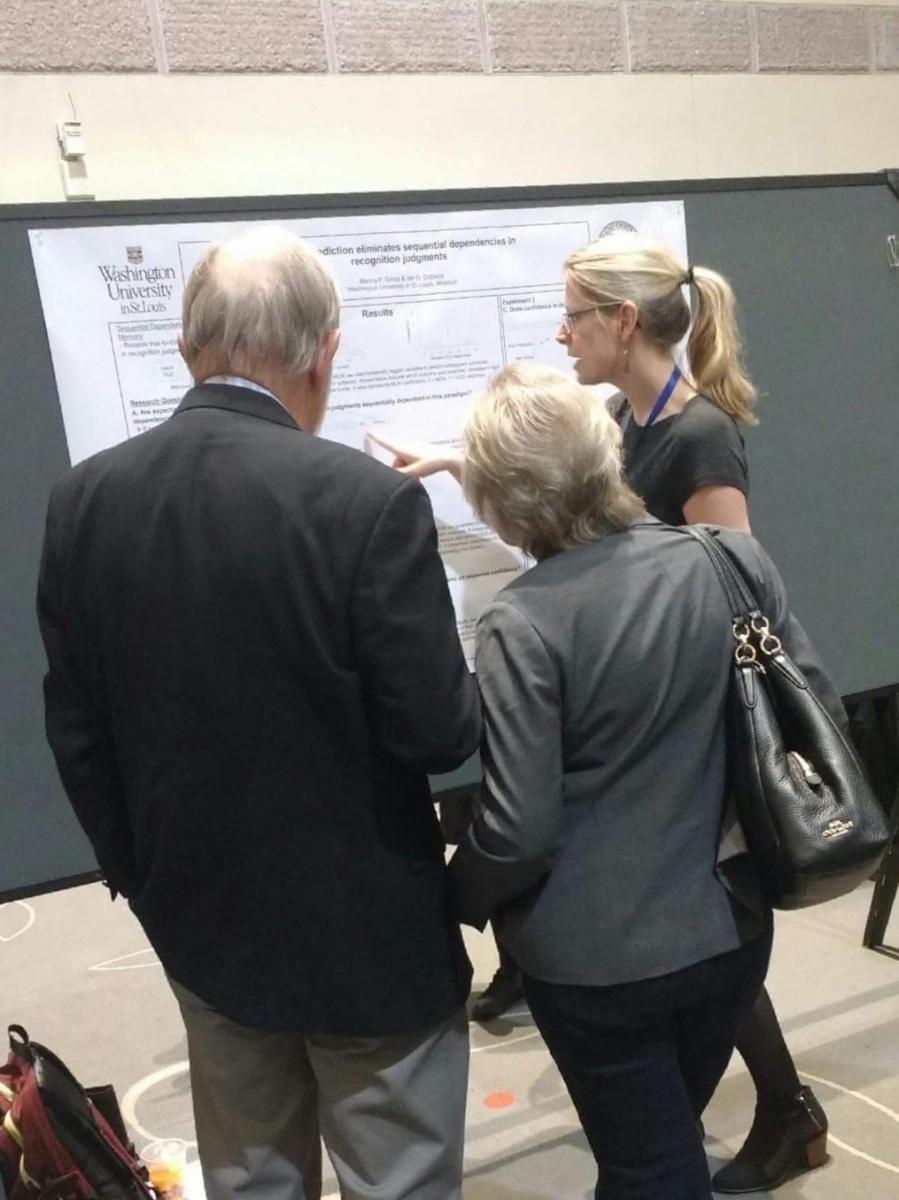
For her thesis research, Marina is critically testing whether pupillometry, the detailed measurement of changes in the pupil of an eye, indicates learning or time pressure – for example, worrying that you will run out of time to read a passage or answer a question. Marina’s experiments over the past several months found that time pressure made all the difference in her experiments; pupil measurements were not truly measuring learning in her paradigm. Her work with Professor Ian Dobbins shows that in future experiments using pupillometry, researchers must be aware of and account for the effects of time pressure. Marina still loves using pupillometry and thinks it will have applications in education – could it recognize attention deficit earlier? – and in aging medicine – could pupillometry help diagnose pre-clinical Alzheimer’s disease?
Especially in graduate school, she says, “you need to do something where your heart is in it.” The fellowship provides $34,000 each year for three years - a higher stipend than most programs. This allows Marina to send a meaningful amount back to her mom in Potsdam, Germany. It also affords her the flexibility to commit more time to her research, since she can devote less time and energy to working as a teaching assistant. As a non-traditionally aged student from Germany, Marina explains that, in some ways, she has been living her life “in reverse.” She was the first in her family to get a high school degree and worked for a few years both before and while completing her undergraduate degree at the University of Oregon. When Marina is not focused on her research, academics, and co-leading the graduate student senate, she enjoys Latin dance. She says she sees dance as an analogy to graduate school, because initially “you don’t really know what you’re doing,” but after a few years, graduate students, like dancers, get into the rhythm and begin to really enjoy it. Plus, Marina adds, “I will go crazy if I only do research.” Traveling is also important to Marina. Since starting at WashU, she has presented her research in her hometown of Potsdam, Germany, in Budapest, Hungary, and in Scotland. She has plans to visit friends in Brazil and the Bahamas and to return to Mexico City to see the mural art scene and pyramids. “I don’t go out to dinner,” she confesses. “I buy plane tickets.”
Nichole Runge
2014 fellowship recipient in Psychological & Brain Sciences
5th year graduate student
Nichole (Niki) exemplifies the volunteer work and society-focused research that NSF evaluates as part of its broader impacts criteria. Since college, she has encouraged and enabled minority and first-generation college students to pursue higher education, both through mentoring teens in St. Louis and Fremont, CA, and her work on a Rotary Scholarship in Bolivia, where she started a library at a battered women’s shelter to help improve literacy.
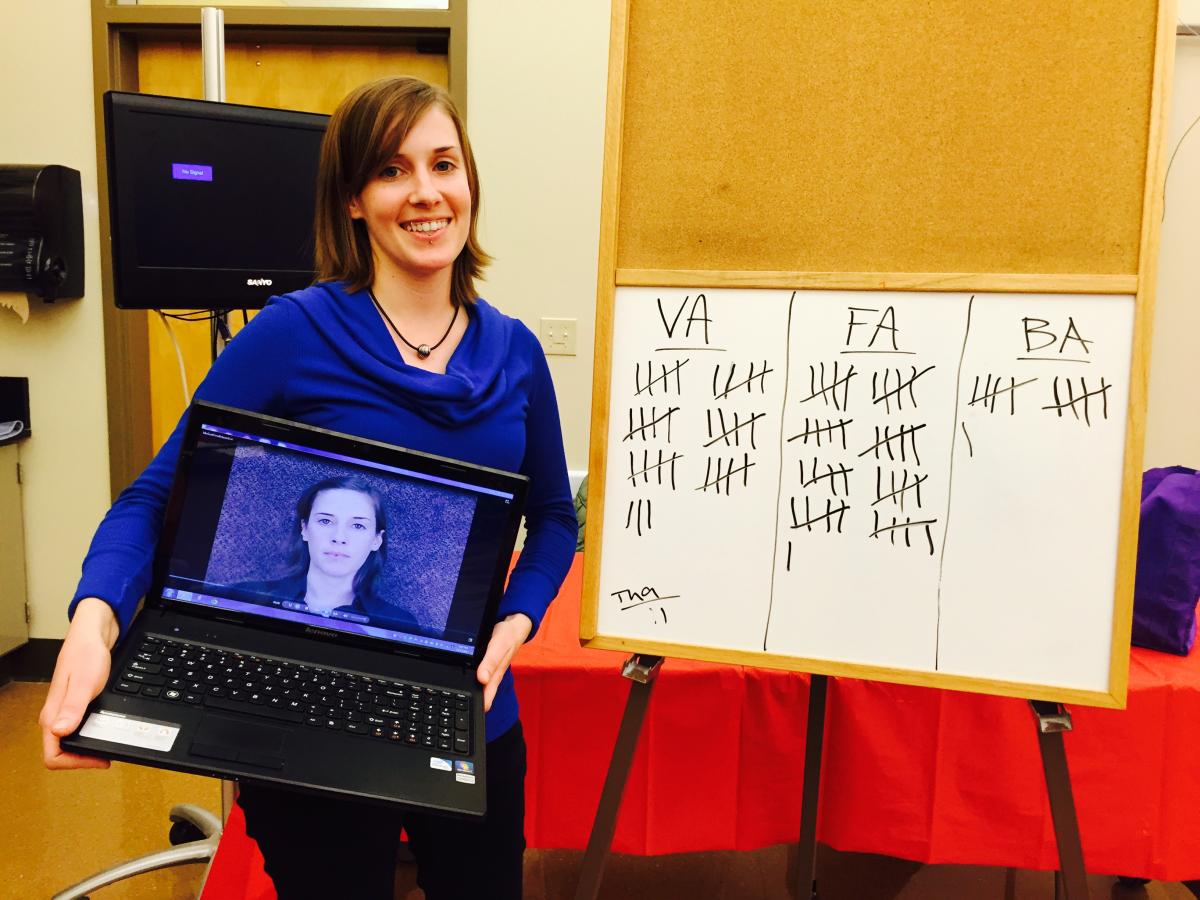
Literacy, learning, and language acquisition are common themes in Niki’s research and volunteering. Her experiments test how changing up definitions and talkers’ accents affects how people learn words in their own language or even in a foreign language. She found, for example, that college-aged English-speakers learned the meanings of new words better if they were shown six different definitions of that word rather than seeing the same definition six times. Such findings have a high potential to change vocabulary teaching, Niki notes.
Although her college major was Latin American Studies, Niki realized she liked learning how the mind works and added a minor in psychology. She began researching the psychology of language acquisition in several labs before deciding to pursue a masters and doctoral degree in the lab of Professor Mitchell Sommers at WashU. The lab and university captured her interest, and, as a St. Louis native, she felt at home in the area.
Volunteer projects are a highlight of Niki’s time in graduate school. She made a video for the Amazing Brain Carnival at St. Louis Science Center showing the McGurk Effect, an auditory illusion where the sound and image are mismatched and trick the viewer’s senses. Niki plans to donate the video to reach a wider audience when she cannot be there to demonstrate it in person.
Niki’s first passion was Spanish, and she came back to it through her volunteer work mentoring local Latino prospective first-generation college students through Washington University’s Puertas program. Niki also shares her experiences from around the world with middle-school students in her former school district in Mehlville. She and several women in STEM professions describe their work, how they got into it, and what their life was like as students. Many girls enjoy science in school, but are not connected to adults who exemplify the STEM career pathway, Niki says. Meeting scientists they can identify with, like Niki, can expand girls' career options, dispel stereotypes, and spark their interests.
Applications for a NSF graduate research fellowship are due in October, and all US citizens, nationals, and permanent residents pursuing graduate degrees in STEM or STEM education are invited to apply during their final year of undergraduate studies or the first two years of their graduate program. NSF especially encourages women, members of underrepresented groups, persons with disabilities, veterans, and undergraduate seniors to apply. The Graduate School, the Division of Biology & Biomedical Sciences, and the School of Engineering & Applied Science offer seminars and a series of small group meetings on both campuses in the early fall to help Wash U students prepare strong applications.
